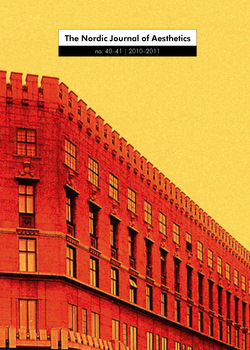Form and Freedom: The Kantian Ethos of Musical Formalism
DOI:
https://doi.org/10.7146/nja.v22i40-41.5200Keywords:
Hanslick, Kant, formalism, musical understanding, autonomy of musicAbstract
Musical formalism is often portrayed as the enemy of artistic freedom.
Its main representative, Eduard Hanslick, is seen as a purist who, by emphasizing
musical rules, aims at restricting music criticism and even musical practices themselves. It may also seem that formalism is depriving music of its ability to have moral significance, as the semantic connection to the extramusical is denied by the formalistic view. In my paper, I defend formalism by placing Hanslick’s argument in a Kantian framework. It is not hard to find Kantian elements in Hanslick’s work, such as his emphasis on the contemplative and disinterested nature of the aesthetic judgment, the nonconceptuality of music’s content, and his insistence that “beauty has no purpose.” I argue further that Hanslick’s formalism is in fact motivated by and manifests the Kantian conception of freedom as self-legislation. Thus understood, the kind of moral significance music may have rests upon its own autonomous rules.
Downloads
How to Cite
Issue
Section
License
Authors who publish with this journal agree to the following terms:
- Authors retain copyright and grant the journal right of first publication with the work simultaneously licensed under a Creative Commons Attribution License that allows others to share the work with an acknowledgement of the work's authorship and initial publication in this journal.
- Authors are able to enter into separate, additional contractual arrangements for the non-exclusive distribution of the journal's published version of the work (e.g., post it to an institutional repository or publish it in a book), with an acknowledgement of its initial publication in this journal.
- Authors are permitted and encouraged to post their work online (e.g., in institutional repositories or on their website) prior to and during the submission process, as it can lead to productive exchanges, as well as earlier and greater citation of published work (See The Effect of Open Access).




